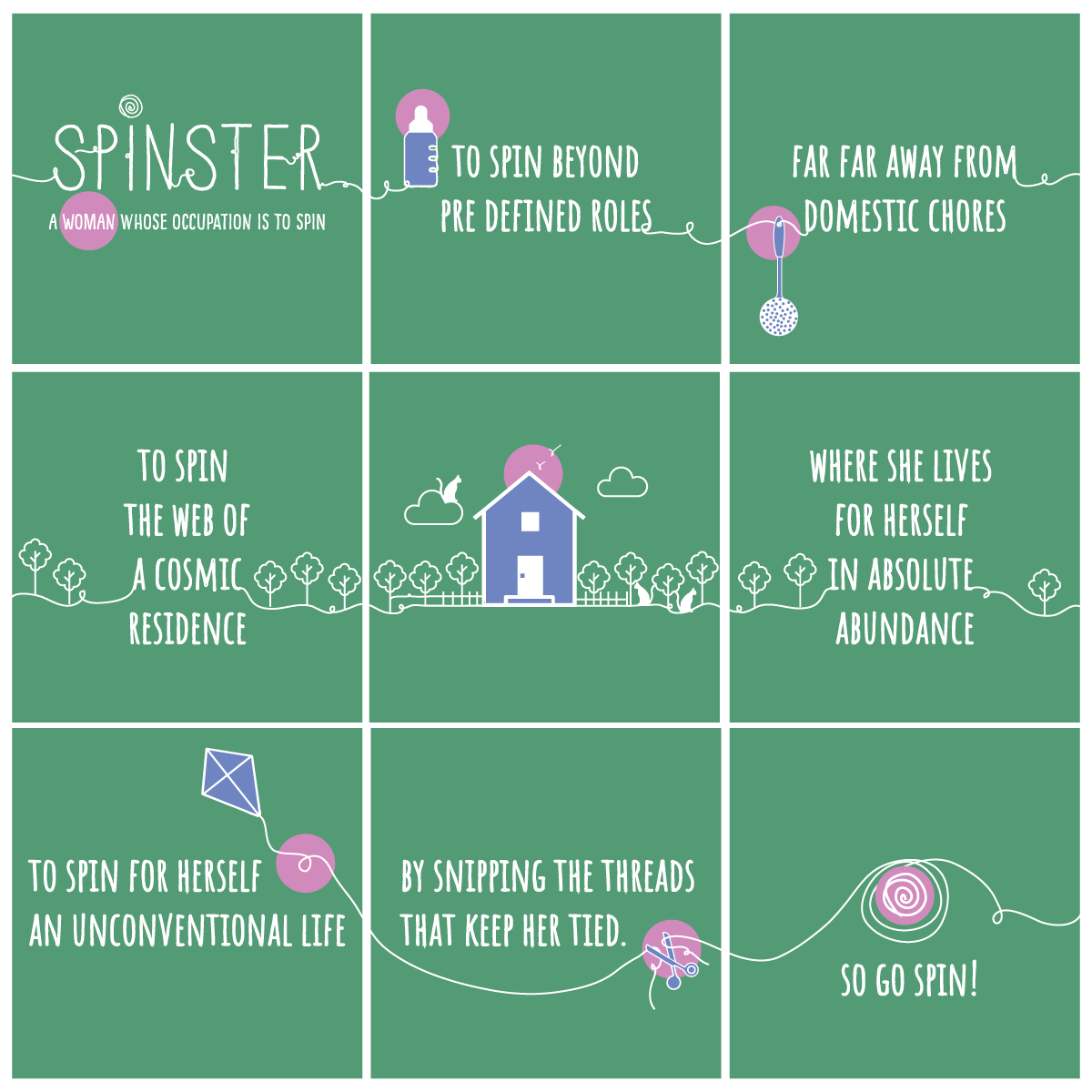Spinster
Spinster: A woman whose occupation is to spin.
Strip inspired by writings of Dale Spender, Mary daly, Kate Bolick and Sheila Jeffreys.
Linguists such as Deborah Cameron and Dale Spender have analysed the English language and argued that in a variety of ways it systematically denigrates women. There are more negative words for women than for men and more words with negative associations. This is especially apparent if we compare the associations of 'female' words with those of the equivalent male words, often the female words have acquired pejorative meanings and connotations.
One such example is 'Spinster' vs. 'Bachelor'. Both words denote individuals who are unmarried. However 'Bachelor' often suggests someone who is young and leading a carefree, enviable lifestyle (eligible bachelor, bachelor pad), while 'spinster' is more likely to imply that the person referred to is older and possibly plain and unattractive. There is no such person as an eligible spinster. The term which evolved as a word describing a woman who spins wool for fabric, has long been associated with unattractive old maids.
Jackie M. Blount calls spinsters gender transgressors, women who managed to find lives of independence and autonomy. Mary Daly in her book 'Gyn/Ecology' gives a new spin to the word 'spinster'. She invents spinning with a wealth of women's meaning which makes it of superb value for women. She takes the word 'Spinster' with all its derogatory meanings, reinvests it with its original meaning, that is a woman whose occupation is to spin; and retrieves it from patriarchal order by producing its meaning for women. There is no reason to limit this rich and cosmic verb. A woman whose occupation is to spin participates in the whirling movement of creation. Spinsters can find out way back to reality by destroying the false perceptions of it inflicted upon us by the language.
So if you are an unmarried woman, living life on your own terms... don't be afraid to call yourself a spinster!

